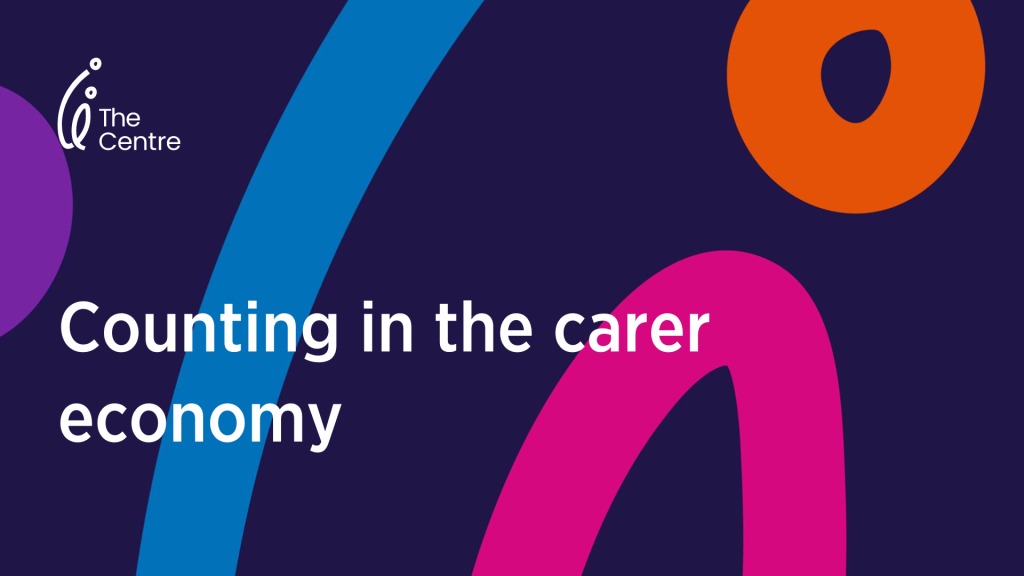“Even though women’s participation in paid work has grown, women continue to work in female dominated occupations, which are often low paid or casual workforces.” says the Centre’s CEO Deb Tsorbaris on LinkedIn.
Increasing frustration at the lack of progress for gender equality is moving International Women’s Day away from cupcakes and morning teas and into a strong feminist movement demanding recognition and system change.
For the Centre and our sector, International Women’s Day messages highlight the ongoing undervaluing of the care economy in Australia.
Much of the work done by carers is unpaid. Most of it is done by women.
One of the biggest obstacles for equal participation is that there is little to no economic value attributed to unpaid care work. In the measures that matter, “women’s work” is rarely counted or severely undervalued.
Carers Australia estimates the annual replacement value of unpaid care in Australia is almost $78 billion. The Draft National Care and Support Economy Strategy 2023 calculated the gross value added to the economy from the health care and social assistance sectors to be $175 billion, with 15 percent of the total workforce employed in the care sector.
The Centre’s 2022 Cube report into the value of foster care estimated that, for every dollar invested in supporting foster carers, the Victorian Government received more than $4 of direct economic benefits in return, totaling $80 million in active caregiving hours and $453 million in the avoided costs of placing children in alternative forms of care.
It’s not possible to provide the best possible care if a carer cannot afford to do so. The lack of financial support combined with cost-of-living pressures means for some potential carers, financial considerations can be a significant factor when they are deciding if they are able to offer a safe and nurturing environment for a child in need.
This is the greatest tragedy of all, because becoming a foster carer is quite different to caring for family. There is no inherent sense of obligation for foster carers – it is a selfless, genuine act from the most kindhearted people in our communities. That our systems don’t support and nurture that intrinsic motivation of wanting to help children and young people in need, should be a driver for system change on its own.
What do carers need?
Carers Australia estimates the personal cost to Australia’s 2.65 million carers when they take on a caring role is more than $567,000 in lost earnings and superannuation. Informal, unpaid carers miss out on substantially more in lost earnings and super.
A Federal Government inquiry into the recognition of unpaid carers is currently examining submissions on the value of unpaid care, the needs of specific carer groups and the need for reforms to the Carer Recognition Act 2010.
The adequacy of payments for carers is out of scope for this inquiry, but it seems almost impossible to raise the profile and the way that we value paid or unpaid care if we don’t look at the costs, allowances and compensation needed to meet the demand for care services in Australia.
There are many levers that governments can pull to support carers such as tax relief and superannuation support that could encourage carers to continue giving their time to others and would have a huge impact.
Even changing policy definitions of “work” to include the unpaid care work that Australians undertake, such as childcare, elderly care, care of country and community work, would make caring visible and valued.
This International Women’s Day we ask that policymakers stop and consider the value of the care economy and of women’s work, and #CountCarersIn.
Read Deb’s full article on LinkedIn here.






